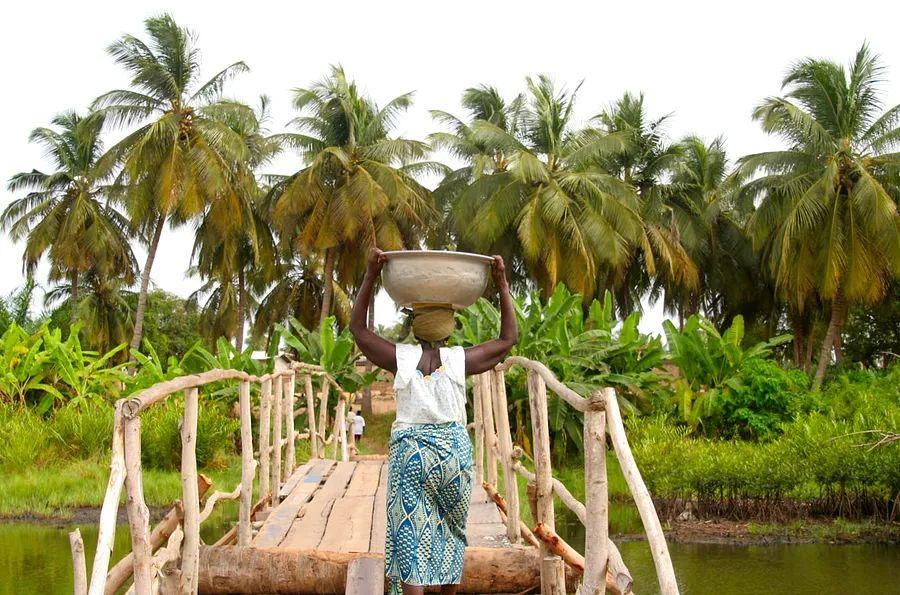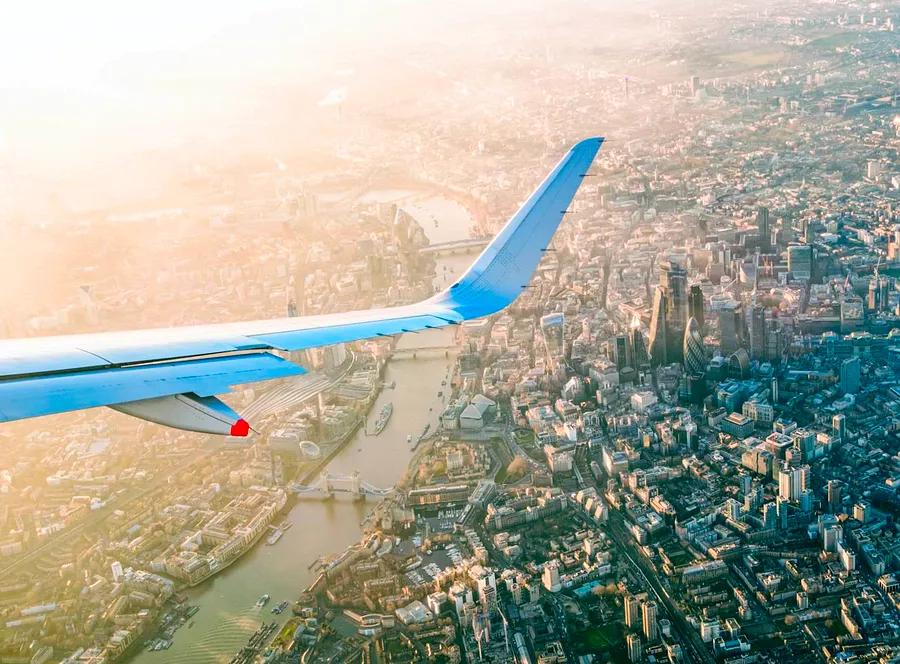12 budget-friendly ways to experience Benin

While Benin is already one of Africa's most affordable destinations, there are still numerous ways to reduce your travel expenses further.
From lounging on sun-soaked beaches along the Atlantic coast and exploring Vodou culture to swimming in serene lakes and spotting elephants, lions, and cheetahs in Parc National de la Pendjari, creating unforgettable memories in this charming West African nation is incredibly affordable.
Here's how to explore Benin on a budget.
Daily expenses in Benin
Hostel accommodation: $30–50 per night
Hotel accommodation: $95–460 per night
Basic double room: $50–150 per night
Self-catering apartment (including Airbnb options): $40–150 per night
Public transport fare: starting at $5
Coffee: $2–5
Sandwich: $5–7
Meal for two: $30–50
Beer/pint at a bar: $5–8
Average daily expenditure: $75 per day, covering three meals, lodging, transportation, and basic activities.
Begin organizing your Benin adventure with this guide to the country's must-see attractions
 Benin offers a wide variety of accommodations to fit every budget © Yuan Jianglei / Getty Images
Benin offers a wide variety of accommodations to fit every budget © Yuan Jianglei / Getty Images1. Reserve your accommodation directly and ahead of time
Benin offers lodging options for every budget—from beachfront resorts to cozy guesthouses. Upscale hotels are primarily found in Cotonou, with a few in Ouidah and Natitingou. Most feature restaurants, bars, Wi-Fi, and air conditioning.
To save money, make reservations in advance and try to book directly. More affordable accommodations tend to be on the city's outskirts, which may increase your transportation costs to the center. Without your own vehicle or driver, you’ll likely rely on zems (zemi-johns; motorbike taxis), with typical fares ranging from $0.25 to $0.75 within towns.
Luxury travelers can indulge in a stay at Nature Luxury Lodge in Ouidah, where nightly rates are about $458. For a midrange option, consider Golden Tulip le Diplomate Cotonou, starting at $132 per night. Budget travelers can find accommodations like the Millennium Popo Beach Hotel in Grand Popo for approximately $97 per night.
2. Camping offers a budget-friendly way to explore the country
Reduce your lodging expenses even more by camping in Benin. Stay at Camping Le Paradis Du Soleil in Cotonou for $35 per night, where you can enjoy beachside living among palm trees. Cut food costs by cooking in the shared kitchen or using the inviting barbecue area. For a more exclusive experience, Glamping Lakeview Ouidah offers two lakeside tents on 24 acres of lush greenery starting at $80 per night, ideal for those wanting to escape the crowds. Guesthouse Bambou Beach in Grand Popo is one of the most upscale glamping options in Benin, with fancy huts right on the pristine beach for $94 a night, complete with stunning Atlantic Ocean views.
3. Fly directly to Benin—January is ideal if possible…
January is the most affordable month to fly to Benin, with prices approximately 40% lower than during July and August. Although there are more flights from Europe to Nigeria and Ghana, it's still cheaper to fly straight to Benin, avoiding the cost and hassle of overland travel from either country or Togo.
4. …but the best time for budget travelers to visit is from March to May
March to May marks springtime in Benin, making it the optimal period for budget-conscious travelers. Temperatures drop to a more comfortable 25°C (77°F), making travel across the country easier, and accommodation prices generally decrease as well.
Excited to visit Benin? Discover the optimal timing for your trip with our seasonal guide
 Local produce offers the most economical option in Benin © Yannick Tylle / Getty Images
Local produce offers the most economical option in Benin © Yannick Tylle / Getty Images5. Beninese cuisine is the most affordable food option
Beninese dishes rank among the finest in West Africa and bear a close resemblance to Togolese cuisine, with the main difference being in the names: fufu (a starchy staple made from ground plantain or cassava) is typically referred to as igname pilé here, and djenkoumé (a savory cornmeal and tomato cake) is known as pâte rouge. In southern Benin, fish is a culinary highlight, often featuring barracuda, dorado, or grouper, typically grilled or fried.
For affordable meals, dine at local restaurants offering Beninese cuisine. In Cotonou, Leadicious Cafe is known for its delicious djewo (a traditional Beninese dough); La Cabane du Pêcheur on Cotonou's beach serves a popular Dahomey fish stew (fried fish with onions and tomatoes); and Food'in offers tasty Beninese snacks like kuli-kuli (sweet peanut fritters) and yovo doko (similar to donuts).
6. Skip pools and opt for wild swimming instead
Although the coastal beaches aren't safe for swimming due to strong currents, Benin has numerous spots to cool off. Many hotels feature swimming pools (some charge for day access to non-guests), but you can also enjoy the lagoons of Southern Benin and Lake Ahémé.
For an even more invigorating swim, visit the Kota Falls, located 15km (9 miles) southeast of Natitingou, just off the main highway. You can take a dip in the pool at the base of the falls or relax in the cool shade of the surrounding greenery.
7. Discover Cotonou's markets for a true taste of Beninese culture
The Grand Marché du Dantokpa serves as the vibrant heart of Cotonou, Benin’s bustling city. Here, you can find just about anything you desire, from clothing and pirated CDs to soap, plastic sandals, and even livestock. Don't miss the chance to explore traditional items like Dutch wax cloth and batiks inside the market's lively atmosphere.
The Fetish Market is sure to intrigue you. This is the primary spot for purchasing Vodou-related items, including dried animal parts like heads, skins, and hooves. You'll also discover dried herbs and tree barks used in traditional medicine. Benin's markets offer a captivating glimpse into its reliance on ancient customs over Western influences, providing unique insights into the nation's spiritual practices.
 Pendjari National Park offers affordable rates for wildlife observation © Gilles COMLANVI / Shutterstock
Pendjari National Park offers affordable rates for wildlife observation © Gilles COMLANVI / Shutterstock8. Experience wildlife viewing in Parc National de la Pendjari
While there's no way to cut costs on visiting the magnificent 2750 sq km Parc National de la Pendjari, it's still a fantastic deal to explore one of West Africa's premier wildlife viewing destinations. You can spot lions, leopards, baboons, hippos, and elephants for about US$16 a day. In comparison, the entry fee for places like the Masai Mara or Serengeti is US$70, and even Kruger National Park charges US$25.
9. Use buses to travel between towns…
Buses offer the most economical, reliable, and comfortable means of transportation in Benin, particularly for traveling between cities in the southern region and up to Natitingou in the north. ATT and Confort Lines buses are generally better maintained and more dependable than those from other companies, plus they come with air conditioning.
Buses typically guarantee seating and have fixed departure times; it's advisable to arrive early or book the day before to secure a spot on your desired service.
10. …and hire bush taxis for areas not served by buses
Bush taxis, often aging vehicles, serve remote communities that larger buses can't reach. There may be an additional fee for luggage, but they are more affordable than renting a car. Most depart from the gares routières; morning is the ideal time to catch them.
11. Use zems for getting around cities and towns
The most economical way to navigate Benin's towns and cities is by taking a zem (motorbike taxi). They are the fastest and most convenient option, though they can also be risky as many riders drive recklessly and helmets are often not provided. Always negotiate the fare to avoid overcharging.

1

2

3

4

5
Evaluation :
5/5